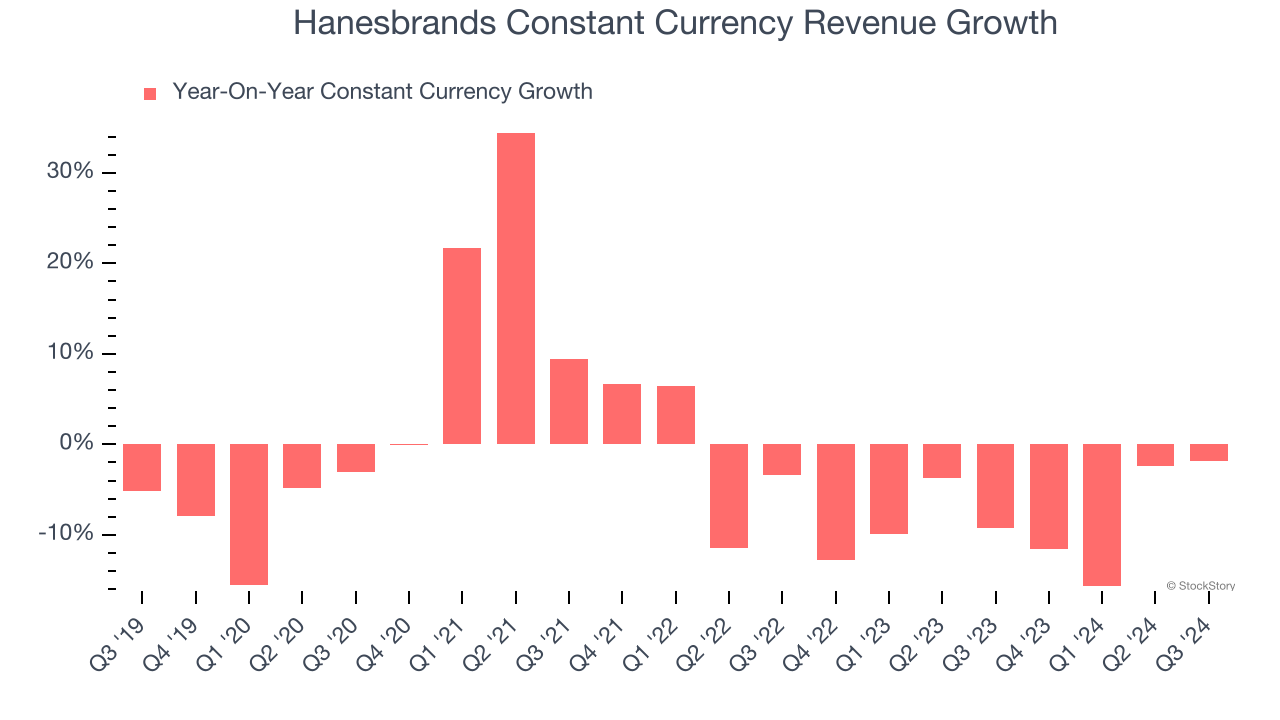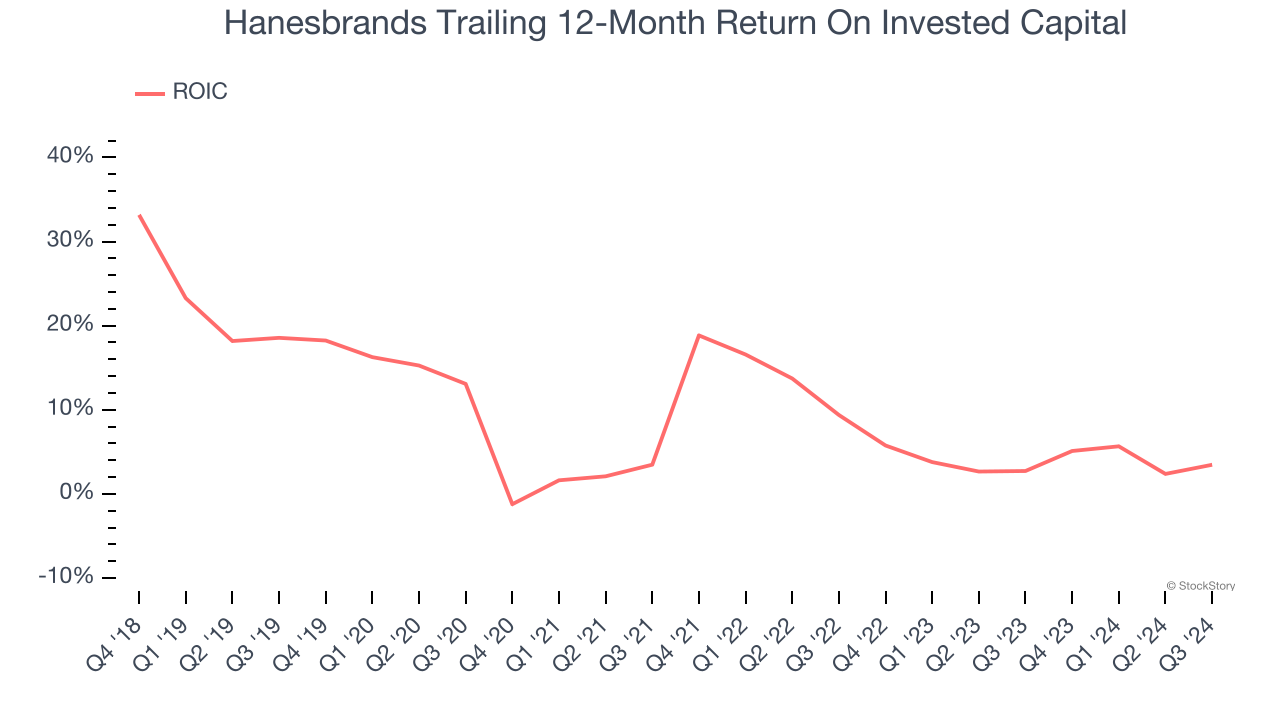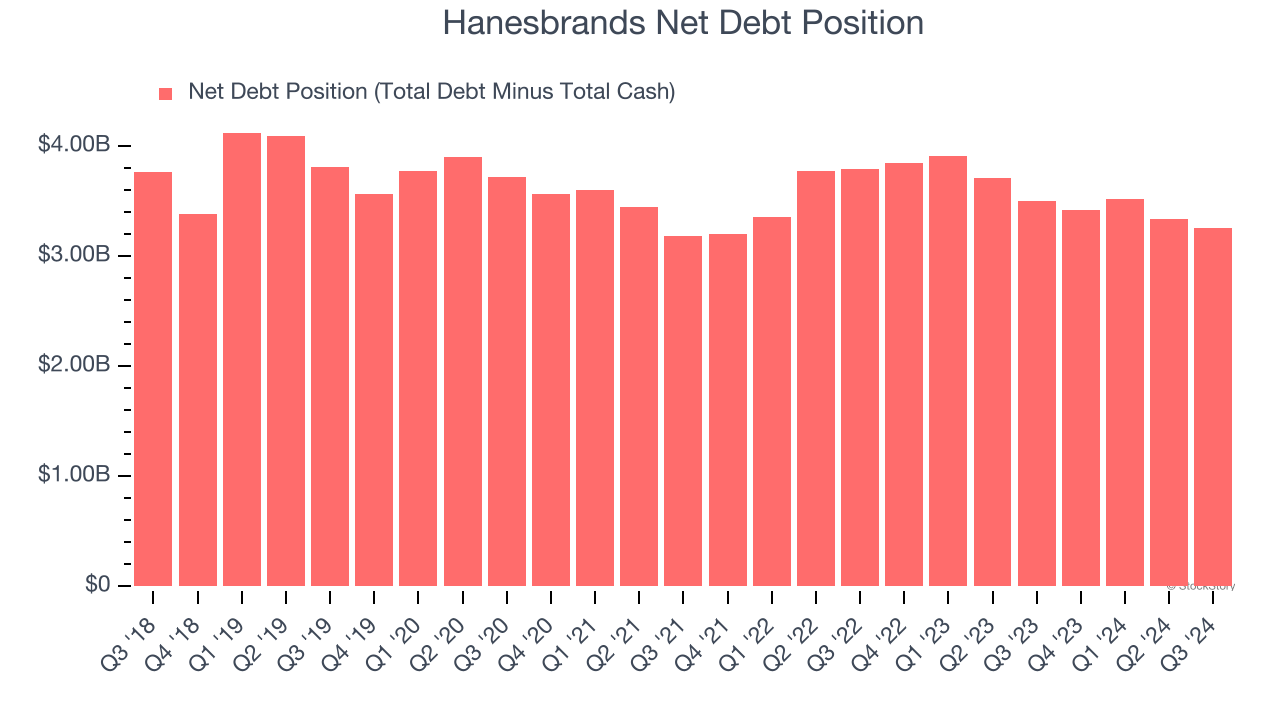
The past six months have been a windfall for Hanesbrands’s shareholders. The company’s stock price has jumped 58.1%, hitting $8.33 per share. This was partly due to its solid quarterly results, and the performance may have investors wondering how to approach the situation.
Is there a buying opportunity in Hanesbrands, or does it present a risk to your portfolio? Dive into our full research report to see our analyst team’s opinion, it’s free.
Despite the momentum, we're cautious about Hanesbrands. Here are three reasons why HBI doesn't excite us and a stock we'd rather own.
Why Do We Think Hanesbrands Will Underperform?
A classic American staple founded in 1901, Hanesbrands (NYSE: HBI) is a clothing company known for its array of basic apparel including innerwear and activewear.
1. Declining Constant Currency Revenue, Demand Takes a Hit
Investors interested in Apparel and Accessories companies should track constant currency revenue in addition to reported revenue. This metric excludes currency movements, which are outside of Hanesbrands’s control and are not indicative of underlying demand.
Over the last two years, Hanesbrands’s constant currency revenue averaged 8.4% year-on-year declines. This performance was underwhelming and implies there may be increasing competition or market saturation. It also suggests Hanesbrands might have to lower prices or invest in product improvements to accelerate growth, factors that can hinder near-term profitability. 
2. New Investments Fail to Bear Fruit as ROIC Declines
ROIC, or return on invested capital, is a metric showing how much operating profit a company generates relative to the money it has raised (debt and equity).
We typically prefer to invest in companies with high returns because it means they have viable business models, but the trend in a company’s ROIC is often what surprises the market and moves the stock price. Over the last few years, Hanesbrands’s ROIC has decreased. Paired with its already low returns, these declines suggest its profitable growth opportunities are few and far between.

3. High Debt Levels Increase Risk
Debt is a tool that can boost company returns but presents risks if used irresponsibly. As long-term investors, we aim to avoid companies taking excessive advantage of this instrument because it could lead to insolvency.
Hanesbrands’s $3.57 billion of debt exceeds the $317.3 million of cash on its balance sheet. Furthermore, its 7× net-debt-to-EBITDA ratio (based on its EBITDA of $483.7 million over the last 12 months) shows the company is overleveraged.

At this level of debt, incremental borrowing becomes increasingly expensive and credit agencies could downgrade the company’s rating if profitability falls. Hanesbrands could also be backed into a corner if the market turns unexpectedly – a situation we seek to avoid as investors in high-quality companies.
We hope Hanesbrands can improve its balance sheet and remain cautious until it increases its profitability or pays down its debt.
Final Judgment
Hanesbrands doesn’t pass our quality test. After the recent surge, the stock trades at 14.9× forward price-to-earnings (or $8.33 per share). At this valuation, there’s a lot of good news priced in - we think there are better investment opportunities out there. We’d recommend looking at the most dominant software business in the world.
Stocks We Like More Than Hanesbrands
With rates dropping, inflation stabilizing, and the elections in the rearview mirror, all signs point to the start of a new bull run - and we’re laser-focused on finding the best stocks for this upcoming cycle.
Put yourself in the driver’s seat by checking out our Top 6 Stocks for this week. This is a curated list of our High Quality stocks that have generated a market-beating return of 175% over the last five years.
Stocks that made our list in 2019 include now familiar names such as Nvidia (+2,183% between December 2019 and December 2024) as well as under-the-radar businesses like Sterling Infrastructure (+1,096% five-year return). Find your next big winner with StockStory today for free.








